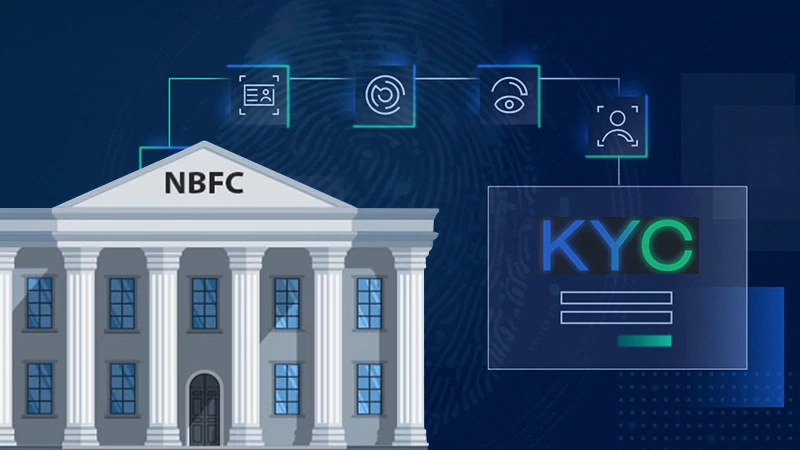A-Z Guide on What is Fixed Deposit and its Benefits
Saving money is a topic that is rarely debated. One of the most basic (and frequently repeated) pieces of financial advice is to save. Despite the critical nature of saving money, many of us fail to follow through on that advice. Knowing that you should save is insufficient when it comes to financial responsibility. Putting money away in a disciplined manner might help you avoid many pitfalls and roadblocks in life.
What is fixed deposit? To be precise investing in a savings account and accumulating money that you may need in a pinch and ensure that your family has a safety net in the event of a disaster. There are numerous reasons to invest in an FD, as well as several simple ways to do it. Some of the advantages of investing in fixed deposits are as follows:
Return on Investment That is Guaranteed
What is a fixed deposit return of investment policy? The guaranteed return on investments is a major reason why many people prefer to invest their money in a fixed deposit. When you put your money in an FD (Fixed Deposit) account, you can rest assured that you will get fixed FD interest rates.
Banks and financial institutions publish the FD interest rates on their websites and in their branches on a regular basis, making it simple for clients to calculate how much interest they will get.
What is a fixed deposit calculator? Banks and financial institutions include an FD interest calculator on their websites. A client can choose how much interest he or she will earn by investing a specified quantity of money for a specific period of time.
Also Read: Know Everything About Money Back Plans
Investing Without the Hassle
What is a fixed deposit’s most significant merit? If you already have a savings account, you can open an FD with a few clicks or by going to your local branch. You don’t have to worry about it after you open it until it grows. You can have your maturity instructions automatically renew or credit your account with the maturity proceeds.
Indulges in a Habit of Saving and Investing
What is a fixed deposit’s safety net? Almost everyone likes to have some money set aside for emergencies. The habit of putting money aside is instilled by having a fixed deposit. Investors who have a lot of liquidity enjoy the peace of mind of knowing that if they have an emergency, they can take a loan against their FD or prematurely withdraw their FD. The fee is minimal, and some banks don’t even impose a fee for early withdrawal making FD a safety net for its holders.
Investing in a Safe Manner
When compared to other investment options, FDs are considered to be one of the safest solutions on the market with suitable FD interest rates. This investment product offers a set rate of interest that does not change with market conditions for the duration of the period.
Tax Benefits for Fixed Deposits
What is a fixed deposit’s relation to tax benefit? Almost every bank offers a tax-saving fixed deposit, which helps the investor reduce his or her tax liability. Section 80C of the Income Tax Act of India, 1961 allows you to claim a tax deduction of up to Rs. 1.5 lakh. However, such tax-saving FDs have a 5-year lock-in term. This means you won’t be able to take the money out early.
Multiple Tenure Available
Customers can choose the period of their fixed deposits from a variety of options offered by banks. Several institutions provide durations ranging from seven days to ten years.
Easy Loan
What is fixed deposit? An FD is an excellent financial instrument to have on hand in case of a financial emergency. Aside from that, you can take out a loan against your fixed deposit with ease. You can borrow up to 95 percent of the amount of your accrued FD, which varies per bank. It is the most dependable investing option because of the ease with which loans can be obtained.
What are the Various Kinds of Fixed Deposit Plans?
A. Standard Fixed Deposit Plan
Almost every bank offers standard fixed deposit products to consumers. When you invest in this plan, you must lock your money in for a set amount of time, which can range from 7 days to 10 years. The nicest thing about a regular fixed deposit is that the FD interest rates are higher than those on money deposited in a traditional savings account. The interest rate on a standard fixed deposit varies amongst banking institutions.
Standard fixed deposit schemes are divided into two categories:
Cumulative scheme
The interest on a cumulative fixed deposit is paid at the end of the term. Interest is compounded annually, quarterly, and annually.
Non-cumulative scheme
In this situation, interest is credited to your account quarterly, monthly, or annually. It’s also important to note that if you select the non-cumulative option, the interest you earn is taxable.
B. Tax Saving Fixed Deposit Plan
The tax-saving fixed deposit is the safest FD system for obtaining tax exemptions under Section 80C of the Income Tax Act. The five-year tax-saving fixed deposit is subject to a certain lock-in period. Investing in this fixed deposit scheme entitles you to a yearly tax exemption of Rs 1.5 lakh. Currently, the FD interest rates on tax-saver FDs are between 5% and 6%.
Follow Us
Latest Post
















